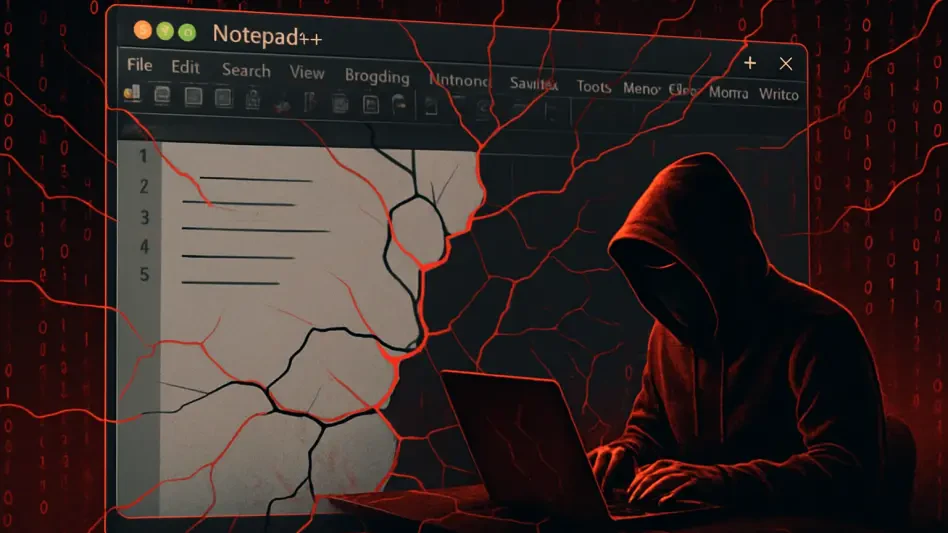France has recently found itself navigating the complex world of cyber espionage, as it accuses the Russian-linked hacking group APT28 of conducting espionage activities against its government and sectors such as defense and finance. This hacking group, believed to be tied to Russia’s GRU military intelligence, poses a significant threat not only to France but also to countries across Europe and the United States. With notable attacks dating back to as early as 2004, APT28 continues to employ sophisticated methods to achieve its objectives. This article gathers insights from experts and industry leaders to explore the various implications of these cyber intrusions and how France might continue to address these threats effectively.
Origins of APT28 and Cyber Footprints
APT28, also known as Fancy Bear, has been linked to numerous high-profile cyber espionage incidents over the years, noted for assaults on sectors like government, military, energy, and media. Some cybersecurity experts suggest that its ongoing attacks on critical infrastructure indicate an intent to gather intelligence and influence public perception. Traditional espionage tactics like phishing, vulnerability exploitation, and brute force attacks have been employed by this group. Despite being known for these publicized attacks, the use of nimble, outsourced infrastructure, such as rented servers, helps APT28 to continuously fly under the radar.
French authorities are no strangers to these activities. Past incidents, including the disruption of TV5Monde in 2015, were initially attributed to pro-ISIS hackers but were later traced back to APT28. This demonstrates the group’s adeptness at using deception and impersonation as part of its broader strategy to sow confusion and havoc among targets. Such ongoing challenges underscore the need for France to bolster its defenses against these clandestine cyber operations that threaten national security and stability.
Implications of Russia’s Cyber Intrusions
The repercussions of Russian cyber intrusions are multifaceted, affecting political integrity, private sector trust, and even public confidence. Analysts argue that these cyber activities could potentially lead to national and international tensions, considering the targeting of sensitive information and infrastructure. In the case of France, the Ministry for Europe and Foreign Affairs has not shied away from publicly condemning Russia, linking these cyber acts to previous instances of interference like the country’s 2017 elections and preparations for the 2024 Olympics.
As hackers continue targeting sophisticated sectors such as aerospace and research, concerns mount over intellectual property theft and the possible disruption of vital services. The implications for France also revolve around the nation’s ability to safeguard its sovereignty in digital marketplaces, where economic competitiveness and strategic decision-making are increasingly tied to cyber intelligence. Some experts state this reinforces the urgent need for robust defenses and collaborative international security frameworks.
France’s Cybersecurity Response
In response to the omnipresent threat, France has developed a cybersecurity strategy that aims to defend against present attacks while preparing for future ones. ANSSI, the French National Cybersecurity Agency, plays a pivotal role in coordinating efforts to protect the country’s digital realm. Some industry professionals highlight that France’s strategy focuses not only on fortifying defenses but also on enhancing its rapid response capabilities to adaptive threats.
Balancing security with freedom remains a central challenge in protecting digital infrastructure. French authorities are tasked with implementing measures that do not overly restrict internet use or infringe upon privacy rights, a balance that continues to evolve as cybersecurity needs grow. Experts emphasize the importance of maintaining open lines of communication between the government and private entities to detect, respond to, and mitigate potential threats effectively.
Techniques and Tactics of APT28
APT28’s modus operandi includes sophisticated attack methodologies and practices of subterfuge. The group routinely employs phishing campaigns, exploiting software vulnerabilities, and brute force attacks to gain access to sensitive networks. This sophisticated approach requires targeted sectors to continuously adapt and modernize their defense strategies, posing a significant challenge to governments and organizations alike.
The ongoing battle, often referred to as a “silent war,” reflects the broader cyber conflict landscape where nations discreetly engage in digital skirmishes. These virtual confrontations often leave little room for overt diplomatic resolutions, compelling states to reinforce digital walls with cutting-edge technologies. Cybersecurity specialists indicate that developing an understanding of adversarial tactics is essential for creating resilient infrastructures capable of withstanding such stealth tactics.
Industry Adaptations in Targeted Sectors
In response to these heightened threats, industries targeted by APT28 have started adapting and employing innovative security solutions. The defense, aerospace, and financial sectors are investing significantly in cybersecurity measures to protect their sensitive information and maintain integrity. Businesses are increasingly adopting cyber-resilience frameworks, which are devised to provide multi-layered protection against evolving threats, ensuring operational continuity.
Governments and private sectors alike are undergoing a transformation in how they approach cyber-defense strategies. By leveraging advanced technological tools and fostering collaborations between state and commercial entities, these sectors are enhancing their capabilities to mitigate risks. Risk assessments and constant vigilance are being integrated into routine operations, ensuring that vulnerabilities are swiftly identified and addressed.
Emerging Trends in Cybersecurity
Amidst these activities, there are several emerging trends and technological innovations within the cybersecurity field that promise to alter the landscape. AI-driven analytics and machine learning are being harnessed to predict attacks, allowing for proactive responses before intrusions occur. Cloud security innovations are also being implemented, aimed at securing multiple endpoints and ensuring strong data governance across the board.
Regional strategies across Europe, comparable to those seen in France, highlight a collective resolve to counter cyber threats. European cyber protocols emphasize cross-border collaborations and knowledge-sharing initiatives to strengthen regional resilience. Industry experts recognize that these coordinated approaches are vital to prevent cyber espionage from undermining democratic systems and economic opportunities.
Global Reactions to Cyber Espionage
Countries across the globe have varied in their responses to Russian cyber espionage activities. While some nations have opted for direct diplomatic engagements, others have escalated sanctions or bolstered their national defenses. Experts in international relations suggest that the multi-faceted nature of these responses reflects differing priorities and capacities for dealing with cyber threats.
Though countries adopt different strategies, a common recognition exists that cyber espionage requires a sophisticated and sustained international effort. Future directions in this arena may include increasing global cooperation and legislative measures that establish cyber-norms to deter state-sponsored hacking activities.
Synthesizing Strategies and Recommendations
In synthesizing key insights, it becomes clear that cybersecurity for nations like France involves more than just defensive maneuvers; it calls for proactive and cooperative approaches. Governments are encouraged to invest in cyber intelligence tools and cross-sector partnerships, applying best practices that ensure robust national security. Regular evaluations of cyber defense postures and comprehensive training exercises for personnel are critical next steps highlighted by industry leaders.
Reflecting on Future Cyber Challenges
The continued threat posed by cyber espionage remains a pivotal concern for international relations and national security efforts. As these digital challenges progress, experts stress the necessity for ongoing vigilance and adaptation to emerging cyber trends. Forging partnerships with international allies and fostering public-private collaborations were identified as essential strategies for creating a united front against potential cyber adversaries.
In conclusion, while France’s adaptive measures signify progress, the evolving digital arena requires continuous innovation and engagement to stay ahead of sophisticated cyber threats. By fostering an environment of cross-industry collaboration and embracing technological advancements, nations can enhance their resilience and better prepare for an interconnected future.








